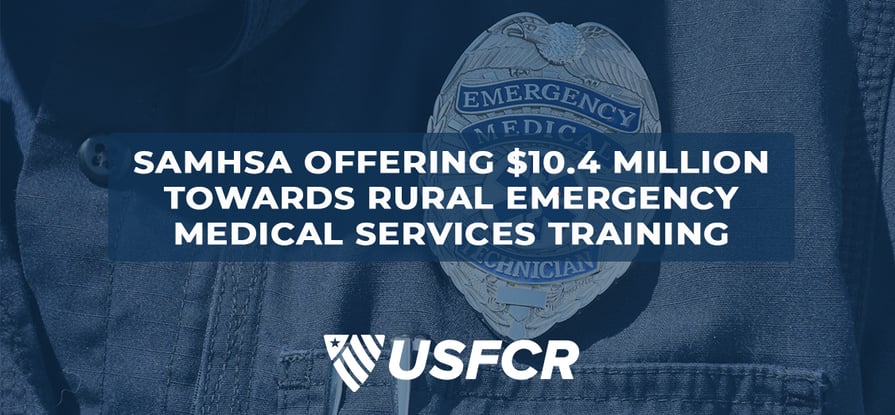
The Substance Abuse & Mental Health Services Administration (SAMHSA) has called for the recruitment and training of EMS personnel to address issues regarding substance use disorders (SUDs) and co-occurring disorders (COD) substance use and mental disorders in rural communities. Roughly 46 million U.S. citizens live in rural areas and are met with significant health challenges, including “higher rates of chronic disease and suicide, worse maternal health, and limited access to care.” 1
Compounded with the struggle of paying medical bills, over one-third—more than 36 percent—of Americans living in rural communities have opted to skip medical care in 2023. In contrast, countries such as the U.K., Sweden, and Norway reported that fewer than one in ten rural residents skipped needed care due to costs.2 To improve the conditions of rural residents would help curb issues of substance abuse and other illnesses plaguing the U.S. population.
Applicants are expected to include the following activities for this program:
- Train EMS personnel on mental and substance use disorders and trauma-informed, recovery-based care for people with such disorders in emergency situations. This training can be provided via SAMHSA’s Addiction Technology Transfer Center (ATTC), Rural Opioid Technical Assistance (ROTA) Regional Centers, or Opioid Response Network (ORN);
- Acquire emergency medical services equipment (medical equipment purchased requires approval by SAMHSA);
- Train EMS personnel on the use of Naloxone, and/or other FDA-approved opioid reversal medications, in emergency opioid overdose situations;
- Train EMS personnel, provide resources, and implement procedures on connecting those who have undergone overdose reversal to substance use disorder treatment;
- Train EMS personnel on the use of motivational interviewing to engage those individuals who use substances, and/or who suffer mental health conditions, and to provide referrals to treatment and harm reduction services;
- Train EMS personnel on working with local peer-support specialists in assisting those who have undergone overdose reversal, including facilitating warm handoffs (a handoff is conducted in person, between two members of the health care team, in front of the patient and family if present);
- Develop procedures to ensure all overdoses are reported to the state and/or local public health department so that any individual who has experienced an overdose can be followed up with and provided linkages to treatment and referral to ongoing peer recovery support;
- Train EMS personnel, as appropriate, to maintain licenses and certifications relevant to serve in an EMS agency;
- Conduct courses that qualify graduates to serve in an EMS agency; and
- Fund specific training to meet federal or state licensing or certification requirements.
Eligible applicants include non-profit emergency medical service agencies and rural emergency medical services operated by either a local or tribal government (both fire-based and non-fire-based).
Please be aware that applicants must also provide a 10% cost match from non-federal contributions.
The Grant Writing Team at USFCR is now accepting applicants for grant writing support regarding projects for the TI-23-011 Rural Emergency Medical Services Training Grant. Please fill out the following eligibility assessment prior to February 9, 2024 and a member of our staff will be in contact.
Don't miss out on the funding that could elevate your project to the next level!
If you have questions regarding your organization's unique program feel free to contact us at (877) 252-2700 or email grants@usfcr.com.
More Hot Grants
USDA Accepts Applications for $500M High Blend Fuel Infrastructure Investment
USDA Investing Over $1 Billion in Farmers & Rural Small Businesses Across the US.
1. Gunja, M. Z. (2023, July 24). Rural Americans struggle with medical bills and health care affordability. The Commonwealth Fund. Retrieved from https://www.commonwealthfund.org/blog/2023/rural-americans-struggle-medical-bills-and-health-care-affordability
2. Ibid.


